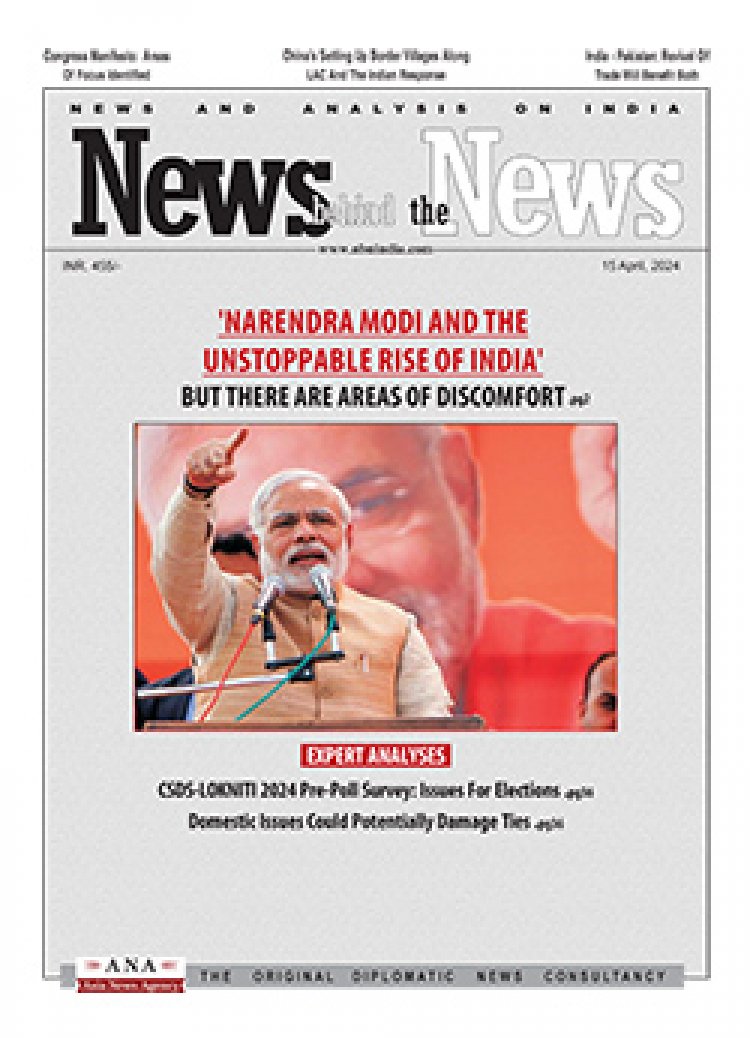Western Quad: Israel, UAE Doubtfully Partners
Asia News Agency

The western Quad, comprising of India, UAE, Israel and the US formed last month, is aimed at China. India and the US are clear about it although the former may not acknowledge it openly. Manoj Joshi (Distinguished fellow, Observer Research Foundation) raises doubts over the commitment of the UAE and Israel. They “do not share the zero-sum assessment of relations with China…
Israel’s growing relations with China
“……China and Israel have had close strategic military ties since the 1980s when Tel Aviv used its prowess in military technology to get close to Beijing. The US eventually blocked these in 2004 and India was able to gain the Phalcon airborne early warning system which was originally made for China. Since then, economic rather than the military relationship has gained salience. Israel’s technology innovation prowess and China’s industrial capacity make for a thriving partnership. A major focus of the China-Israel relationship is Chinese investment in Israeli companies and startups. Their focus is life sciences, software and IT, Internet, communications, semiconductors and clean technology. More than 1,000 Israeli companies are operating in China, mainly in the Pearl River Delta area. The Chinese have also begun operations in a port terminal in Haifa that has been leased to them. Israelis believe that ties with China are a huge strategic opportunity for them, even as they battle US pressure to curb technology ties.”
UAE’s close relations with China
UAE is India’s closest friend in the Arab world. “But UAE’s relations with China are also excellent. There is, of course, the economic relationship, but there is a significant political one as well, manifested by the UAE being a signatory to a letter written by various Gulf countries to the UNHRC defending China’s treatment of Uighurs, as well as backing the Hong Kong national security law in the UN. The UAE has also bucked US pressure and installing the Huawei 5G network in the country. Unlike India, the UAE welcomes the Belt and Road Initiative and Beijing sees the UAE as a hub on which it is developing its commercial ties to the region, as well as Europe and Africa.”
Significantly therefore, says Joshi “in the wake of the US fiasco in Afghanistan, Abu Dhabi seems to be hedging its bets by partnering both Washington and Beijing."
These present a dilemma for India. With “the gap in the comprehensive national power with China widening,….”
Competition vs Global Cooperation
Nevertheless, the US remains a crucial factor in containing China. This a new era of great power competition with an assertive China on one side seeking greater hegemony and the United States seeking to deny China. Secretary Antony Blinken outlined the US approach to China: “Competitive when it should be, collaborative when it can be, and adversarial when it must be.” This is a very smart formulation, writes Pratap Bhanu Mehta (contributing editor, The Indian Express). But the “big question is whether the competitive and adversarial dynamics are now so deep that the space for ‘collaboration’ is diminishing fast."
Mehta argues “two dynamics were supposed to counteract the risks of great power competition. The first was global economic interdependence,” although that “has not led to greater convergence on political values or a more open global political order…..
“The second dynamic counteracting competition was the idea that common challenges like climate change, the pandemic and the risks posed by technology will foster greater global cooperation….” That remains an “illusion” though.
In a global environment of unachieved goals and broken promises from the West, “India, in the context of what other countries are doing, takes a very well-judged stance at the international level. But it is difficult not to wonder whether a country that lets its citizens breathe the foulest air, and cannot get its head around a solvable problem of stubble burning, can project seriousness.”
So, the real choice for the world and India “is not just navigating between China and the United States. It is fundamentally between an orientation that is committed to global problem-solving rather than just preserving national supremacy. It will require reversing Blinken’s formulation. It will require countries to be collaborative when they should be, rather than merely when they can be. There are no takers for this role.”
















